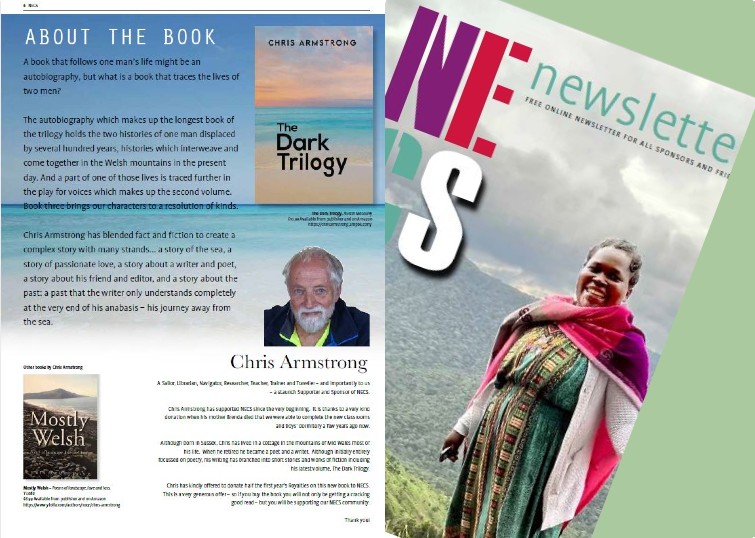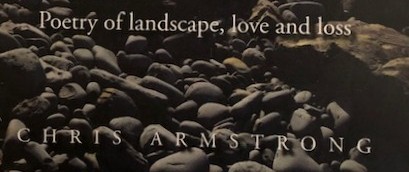The sea is ever present in my writing – both in my prose and in many of my poems. I spent ten years of my life at sea and, both before and after that time, the draw of swimming or surfing continued to take me to beaches. I was lucky to have spent most of my childhood on the Gower in South Wales so had ready access to wonderful beaches. Perhaps that explains – to some extent – the sea’s tidal pull.
Much of the story… much of the two stories in The Dark Trilogy is governed by the sea and my times on it: Book II is a play for voices that covers my first years at sea, particularly the three years when I was learning my trade. And the sea is also present in a number of the short stories that will be published early next years, perhaps nowhere more than in ‘The Endless Horizon’, but other stories too tell of ships in, or between, ports.
I am just completing my second full-length work of fiction – Trystan, which should be published sometime next year, and here, too, although I have set the action in a small town, the sea is very much a focus – always there in the background of the story.
And although the poems in my recently-published chapbook – Book of the Spirit – have another focus, lines in the first poem at least, do not escape the ocean:
…the future
becomes nothing but a sunlit ripple in the dark eternal wash of the sea
…
…until –
watching the sun sink below the horizon, time’s illusory rim, and the vast sea
that is the circle of our future existence wash its unknown waves to our feet
And the second poem picks up the theme:
And we are drops left on the shingle
Until the sea reclaims us for its own
I also have a longer collection of poems being published in 2023. Looking through the selection, I find that nearly 25% of the poems have some link with, lines about, the sea… including ‘Heatherslade’ – of which you may have an early sighting here:
Heatherslade
Where lies my blinding country of youth, that
cloudless demi-dream of some easy time
innocent of the weary world dark, time
fresh born beech bud green, time
joyous as the cuckoo echo across the fields, as
the eternal sea sparkle of the bay, as
I was eternal for a time?
And then was freedom in my world, and time
was mine in that sun lit sea wet summer
and the waves were mine, and the sands golden
at my feet as I plunging had the surf
roll at my will, and the slow day was a time
long pebble pooled in the rocks where the sea and
deep were bounteous for my pleasure
Sun hot days stretched time and heaven was the blue
eternal sea as the hazed horizon conjured wave on
wave to the shore to foam and darken the tide line
gold to darker amber, the swell the surge that gives
renewal to the ever changing sands, that gives
new life to the creatures it strands, that gives
me joy as I poise board in hands, that gives
my body wave born to where she stands








